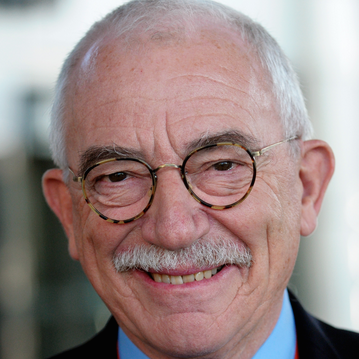News
Trust Principles 'alive and well and kicking'
Wednesday 15 October 2014

The Trust Principles are alive and well and kicking, the chairman of their guardians, Thomson Reuters Founders Share Company, said.
Uffe Ellemann-Jensen (photo), a director and trustee of that company since 2001 and its chairman since 2013, said the relationship between the trustees and Thomson Reuters itself was based on mutual trust.
He told The Reuter Society at a meeting in London that it was important to underline what the trustees were not. “We are not some kind of a committee that receives complaints about what’s happening and tries to act as judges on that. We try to maintain a dialogue to make sure that it is known all over the organisation what the Trust Principles are and that they cover everything.”
A former business journalist and liberal politician who served previously as Denmark's minister for foreign affairs, Ellemann-Jensen said the trustees had a conscience about questions raised during visits to Thomson Reuters offices around the world.
He said that at their half-yearly meeting tomorrow the trustees would discuss the safety of journalists and photographers who were increasingly working under very difficult conditions in war-torn areas.
Asked about the value of the trustees’ Founders share, he said they did not have the powers to get “strong and tough” with the company’s management. “We have our limits and we are aware of that, and therefore we don’t try to move in and try to act tough when decisions are taken.”
Ellemann-Jensen said the trustees had had discussions over recent years about the organisation of news within Thomson Reuters. “And we have at almost every meeting a discussion of what can be done in order to regard news as an asset and not as a cost. So I’m saying that our strength lies more in trying to promote certain attitudes than to act in specific cases.”
The challenge was how to produce income from news in an age of news provided by Twitter, Wikipedia and similar online sources. The management of Reuters and of Thomson Reuters were devoting a great deal of efforts to find answers to that.
Asked about changes in the management of the company since Thomson’s 2008 takeover of Reuters, Ellemann-Jensen said: “Some names have suddenly disappeared and, well, it’s not our decision, we live with the management that the owners produce, but where we try to make a difference is in insisting that the editorial leaders should be placed high in the hierarchy so that there are not too many layers between the CEO of the whole thing and those responsible for editorial. I think we’ve succeeded there.”
He said there had been changes in management style since the takeover but there was a whole new spirit in the company because David Thomson, chairman of the Thomson Reuters board, seemed to be "very much tied up by his family tradition" and was proud of it. “You meet a lot of people who are really proud of being now associated with the Reuters name. And I have heard in many places when I’ve moved around in the world that this is used as a sales argument. This adds something to it, they are proud of it.” ■
- « Previous
- Next »
- 1061 of 2177